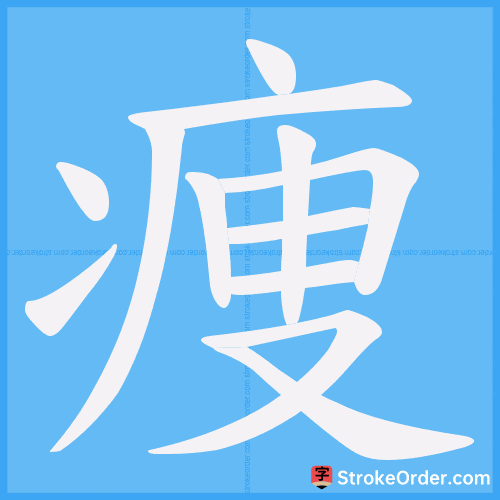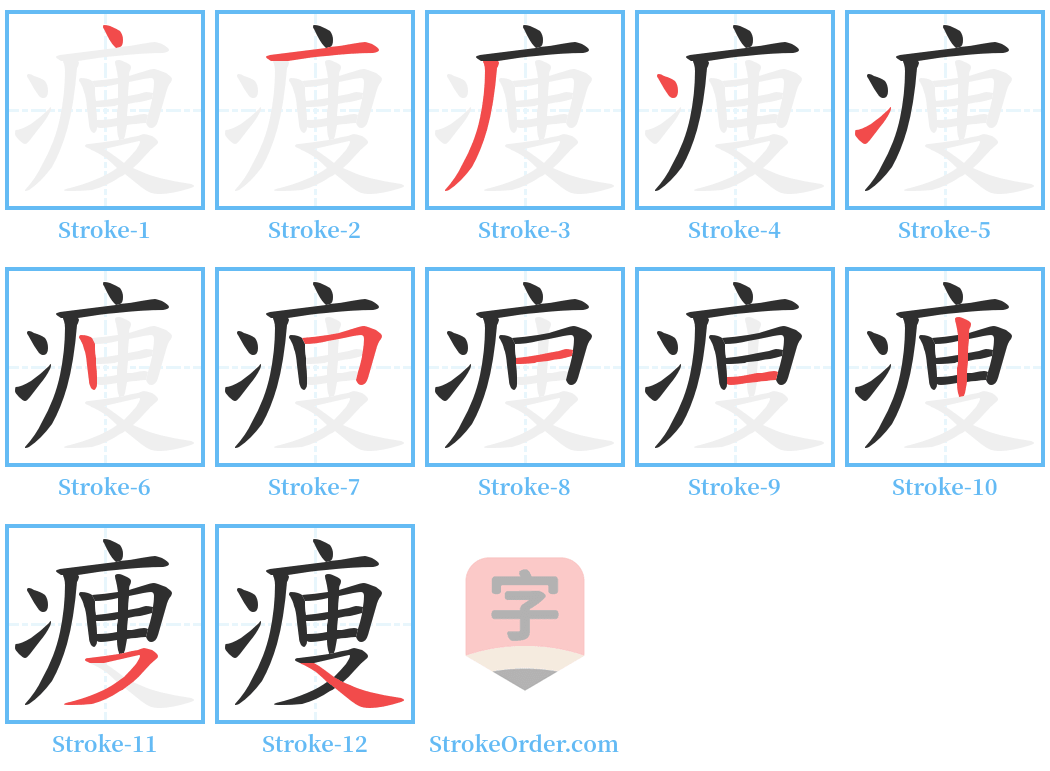痩 Stroke Order
Animated Stroke Order of 痩

Stroke Order Diagrams for 痩

Information of 痩
Pinyin
shòu
Radical
疒
Strokes
12 strokes
Usage
★★
Definition
痩 (shào)
1. Ancient form of "瘦" (shòu), meaning thin or slender.
2. (Adjective) Phono-semantic compound. Composed of the radical 疒 (chuáng), which indicates a relationship to illness, and the phonetic "叟." The primary meaning is: muscles are not full.
- Same as the original meaning. It is the opposite of "胖" (pàng) and "肥" (féi), referring to being thin or gaunt. — From "Shuowen Jiezi."
- To be lean and withered. — From "Xiao Jing."
- In time, it becomes thin and decayed. — From "Zhou Li · Chan Ren."
- A scholar avoided the rain under an eave; with his wet clothes and thin sleeves, he appeared even thinner. — From Qing Dynasty author Zhou Rong's "Yu Lao Ren Zhuan."